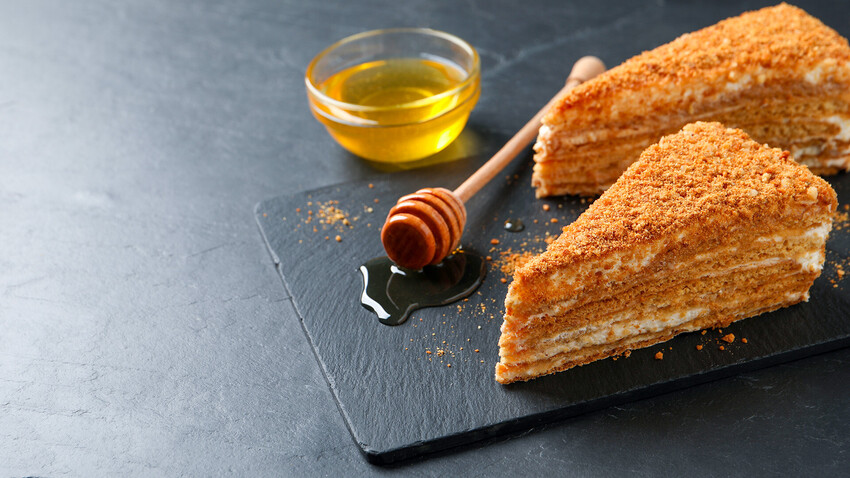
Sugar began to be widely used in Russian cuisine only in the mid 19th century. Until that time, honey accounted for the sweet taste in many desserts. That’s why even today it’s simpler to replace sugar with honey in Russian recipes. But some desserts don’t even need any sweetener – natural fruits and berries are often enough.
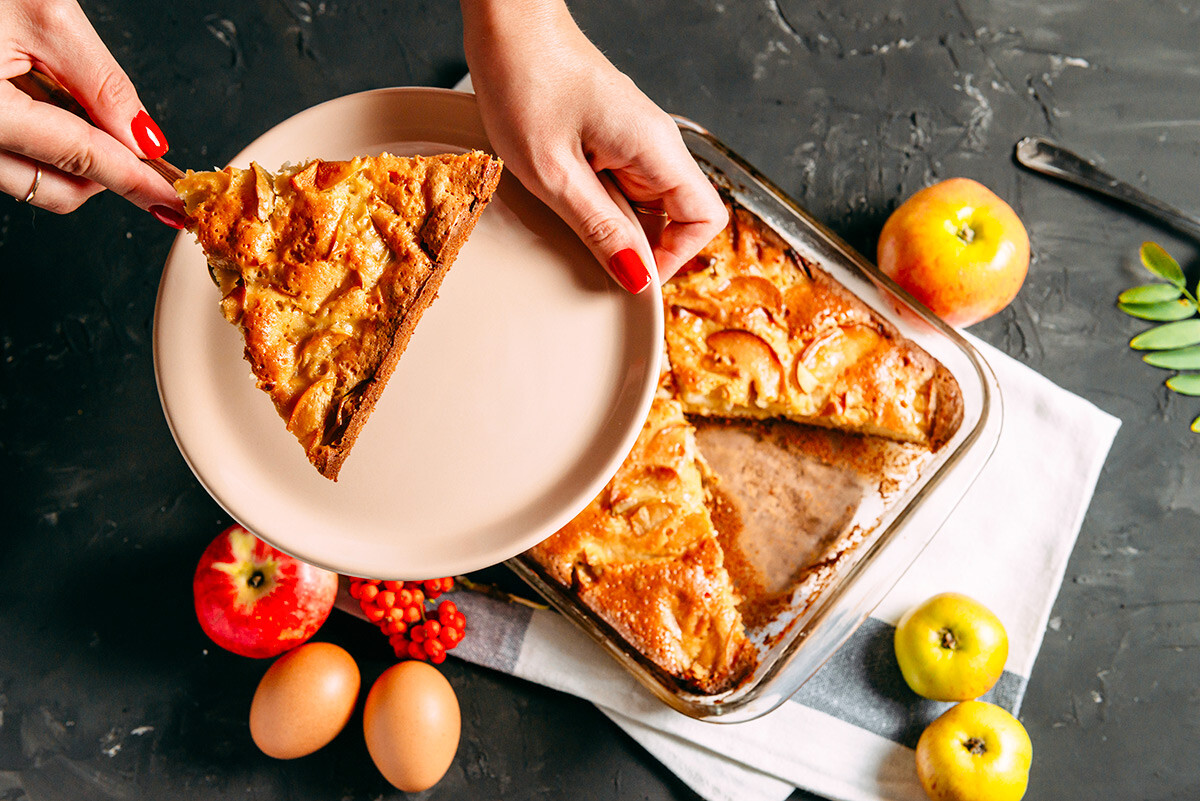
Russian “Charlotte” apple pie first appeared thanks to French chef Antoine Carême, who prepared a luxurious apple pie with savoiardi (ladyfinger) biscuits, Bavarian cream, and whipped cream for Emperor Alexander I when Russian troops entered Paris in March 1814 (after Napoleon’s invasion of Russia and the Patriotic war of 1812). Later, the recipe became widespread in Russia and became simpler in preparation. This delicate apple pie didn’t require any exotic ingredients – flour, apples, eggs, and baking soda were enough.
The classic recipe implies the use of sugar, but it’s easily replaced with honey, or you can do completely without it, especially if you use sweet apples.
1. Wash and dry the apples, remove the apple cores, and then cut the apples into slices. Mix the apples with honey (or do without it), and add a pinch of cinnamon and vanilla if desired.
2. Crack cold eggs into a dry bowl, add a pinch of salt and whip them with a mixer into a thick foam. Continuing to whip, add oat flakes or flour. Add baking soda or baking powder to the mix and stir carefully with a spatula.
3. Grease a baking pan with vegetable oil and dust with semolina or breading mix.
4. Pour the dough into the pan, put the apples on top and pour the honey over them. Put the pie into the oven, preheated to 170° C. Bake for half an hour. You can check if the pie is ready with a matchstick or a wooden skewer.
READ MORE: Sharlotka: The first apple recipe that most Russian kids learn
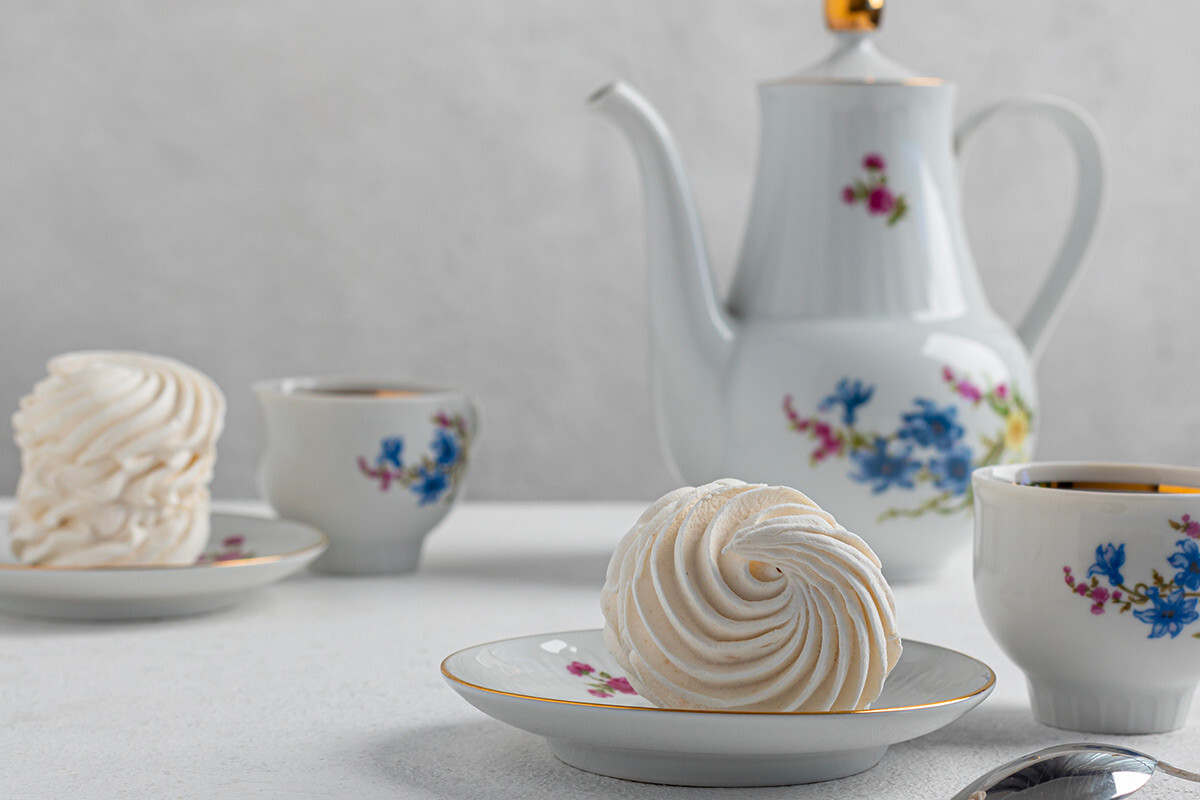
Preparation of the airy zephyr is not the easiest thing to do. Your egg whites need to be whipped well, and you need agar for it to come out properly; otherwise, your zephyr won’t hold its shape. One thing is for sure, however, you can prepare it without using sugar. As a replacement, honey or stevia can be used. But it’s not even necessary. By the way, initially zephyr and pastila in Russia were not as sweet as they are today.
1. Wash and dry the apples, cut them in halves and remove the cores. Bake in the oven for 15 minutes. After baking, the skin is easy to peel away; you’ll only need the flesh for zephyr. Using a mixer or a fork, the flesh will be turned into a puree.
2. To the cooled puree, add honey to taste.
3. Whip the egg whites into a thick foam and, continuing to whip, add the apple puree, spoon by spoon. This is easier to do with a food processor.
4. While the mix is whipping, you can dilute the agar powder in water and, continuously stirring, bring it to a boil. Let it boil for 2 minutes (or follow the instructions on the agar package).
5. Slowly pour the hot agar mix into the egg white/ apple mix, continuing to actively whip.
6. Squeeze individual zephyr pieces onto parchment paper with a piping bag.
7. Let the zephyr cool for at least 12 hours. Agar solidifies at room temperature or in cold temperatures.
READ MORE: Zephyr: Why is this favorite Russian dessert named after a Greek god?
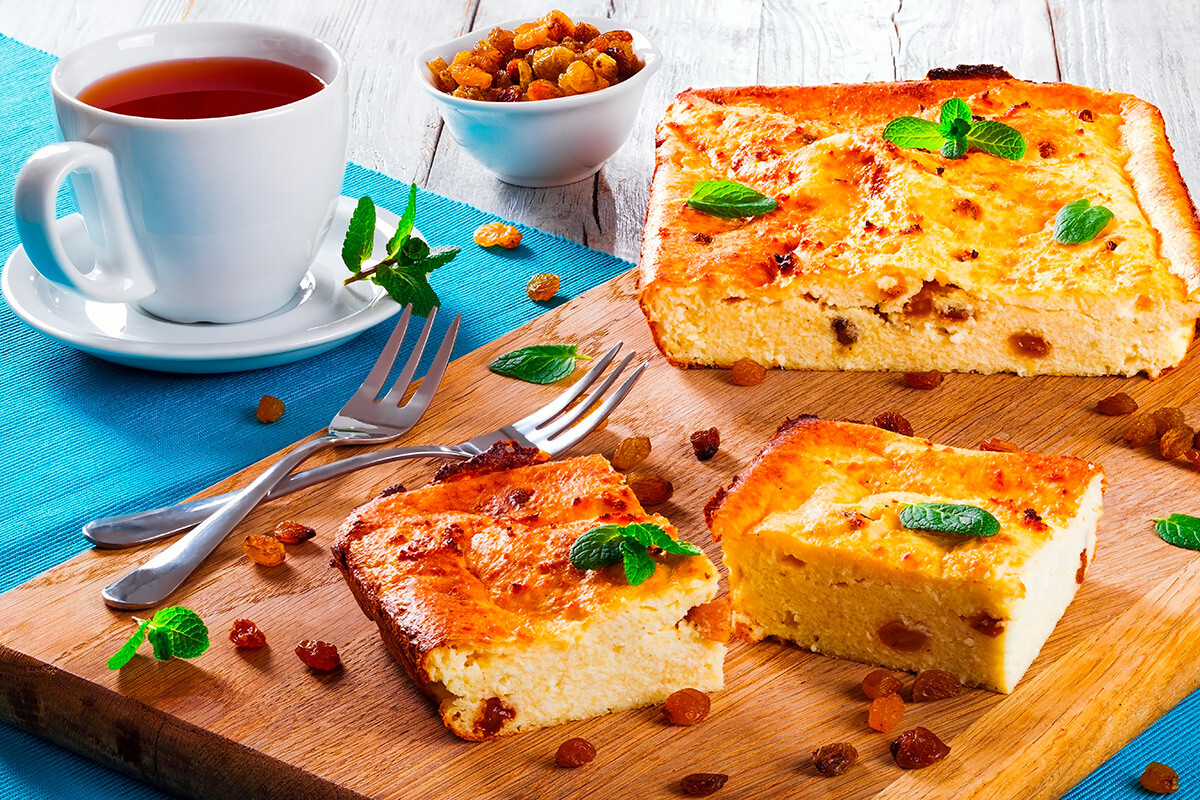
Sweet dried fruit can replace sugar in zapekanka (a baked pudding). Sweet-tooths might want to add some more raisins or dates, as well as dried apricots and prunes. In combination with sour cottage cheese you’ll have a nutritious and balanced dessert.
1. Crack 4 eggs into the cottage cheese, add semolina and honey, if desired. Mix everything.
2. Soak dried fruit in cold water in advance. Cut the soaked and washed dried fruit into pieces. Add cinnamon and mix.
3. Add the dried fruit to the cottage cheese mass and mix.
4. Grease a pan with vegetable oil and pour in your future baked pudding, evening it out on top. Bake for 20 - 25 minutes in an oven heated to 180° C.
READ MORE: 5 ways to cook Russian zapekanka
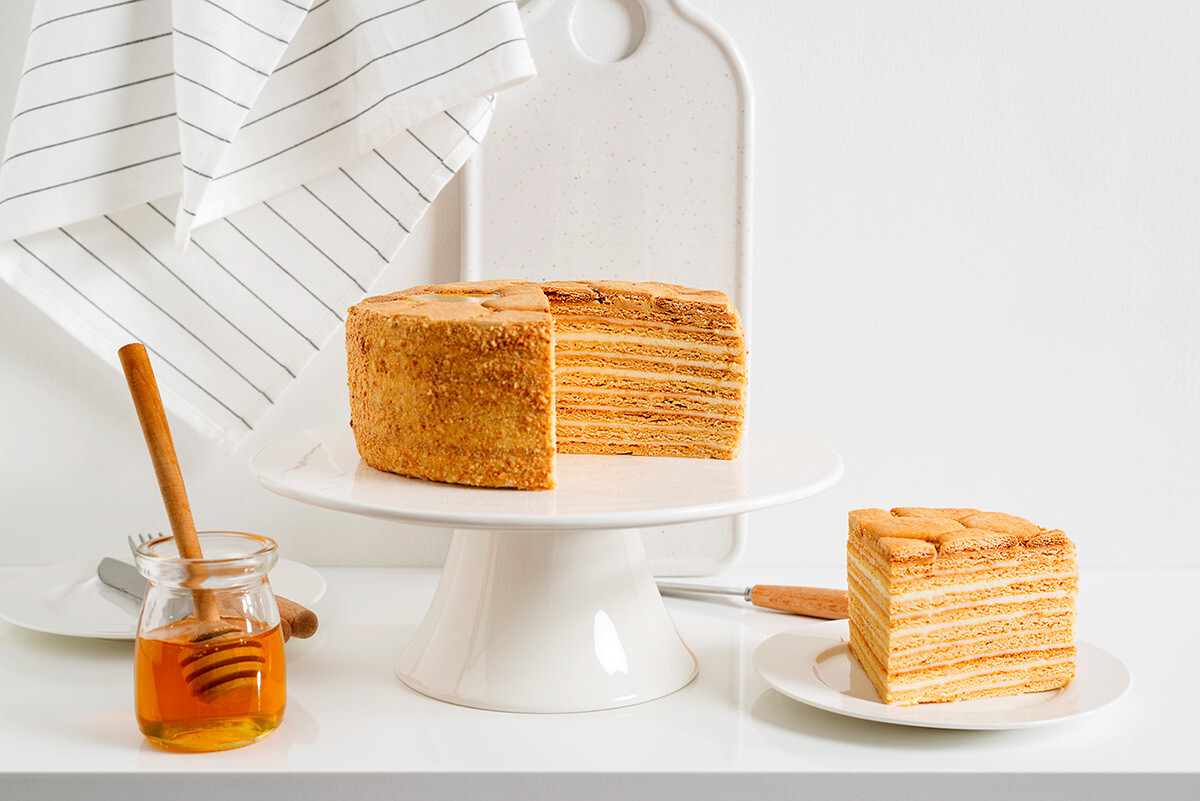
The name medovik literally means “made from honey” and it’s the quintessence of Russia’s love for honey and pryaniki (Russian gingerbread), which were historically prepared with honey. In medovik you’ll add honey into both the layers and the cream. Surprisingly, the cake doesn’t come out overly sweet.
For the dough:
For the cream:
1. Cut butter into cubes and put into a deep heat-resistant bowl. Add honey and put it in a water bath.
2. Add baking soda and, stirring constantly; heat it until the mix starts foaming. Take the mix off the heat and cool it at room temperature.
3. Add sour cream and salt to the mix; stir together. Slowly add sifted flour. Mix.
4. Form a ball from the dough and cover it with plastic wrap; put it in the fridge for an hour.
5. Split the dough into 8-10 parts. Roll each into a thin sheet and cut out a round layer. Bake each layer in an oven heated to 200 °C for 5-7 minutes. If needed, you can cut them to the same size using a big dish or a knife.
6. For the cream, whip sour cream, honey, and soft cottage cheese with a mixer until smooth and well-incorporated.
7. Form a cake from the layers, laying the cream between them. On top, you can sprinkle your medovik with the crushed leftovers from the layers. You can also add crushed walnuts or peanuts.
8. Let the medovik sit at room temperature for an hour, then put it in the fridge for a couple of hours.
Dear readers,
Our website and social media accounts are under threat of being restricted or banned, due to the current circumstances. So, to keep up with our latest content, simply do the following:
Subscribe to our Telegram channels: Russia Beyond and The Russian Kitchen
Subscribe to our weekly email newsletter
Enable push notifications on our website
Install a VPN service on your computer and/or phone to have access to our website, even if it is blocked in your country
If using any of Russia Beyond's content, partly or in full, always provide an active hyperlink to the original material.
Subscribe
to our newsletter!
Get the week's best stories straight to your inbox